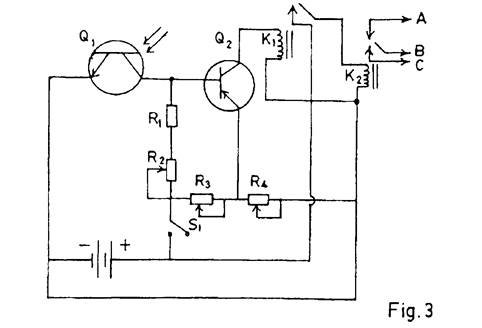Question 5
A technician is preparing to change the lens of a vehicle headlamp. State:
(i) three important steps to be followed;
(ii) two safety precautions to be observed.
(b) Fig. 3 is the circuit diagram of an automatic headlamp brightness switch.

(i) Identify and name five different components in the circuit.
(ii) State one difference in the operation of R1 and R2.
(c) List three obligatory lights in a motor vehicle.
Observation
The expected responses were:
(i) Steps to follow when changing the lens of a vehicle headlamp
- Remove the old/damaged/broken lens
- Clean the lens seat with emery cloth and apply sealant
- Carefully place the new lens on the lens seat and hold firmly
for a short period of time
(ii) Safety precautions that should be observed when changing the lens of a headlamp
- Ensure the thread of screws are not damaged
- Place new lens of soft surface
- Put off the lamp before changing the lens
- (i) Components of the circuit diagram in Fig. 3
- Resistor
- Potentiometer/variable resistor/rheostat
- Photo transistor
- Transistor
- Relay/high current relay
- Relay/low current relay
- Battery
- Switch
- Wire/cable
(ii) Difference between R1 and R2
R1 is a fixed resistor while R2 is a variable resistor
Obligatory lights in a motor vehicle
- Headlight
- Parking light
- Brake light
- Direction indication light
- Reverse light
Question 5 required candidates to show understanding of how to remove the lens of a headlamp. It also required candidates to identify circuit components and name the various examples of obligatory lights in a motor vehicle. It was reported that while majority of the candidates gave poor response to the first task, they gave good responses to the others by correctly identifying circuit components and naming the various obligatory lights.
